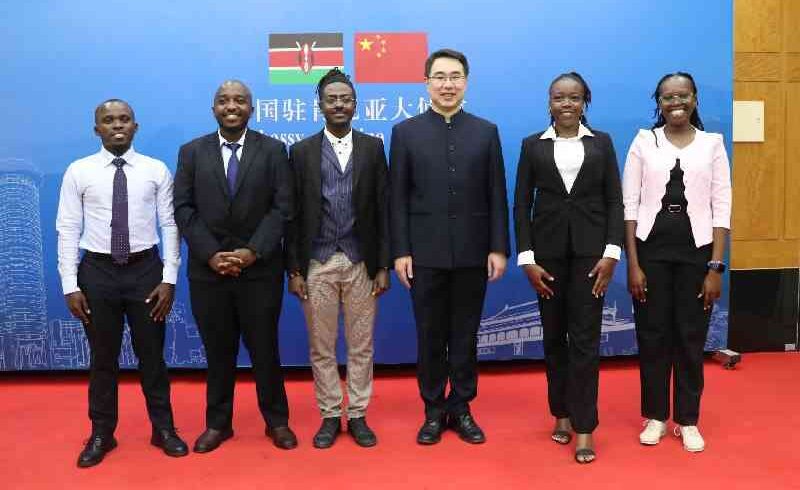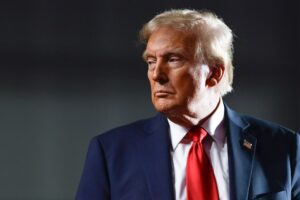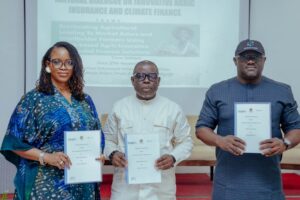
Zhang Zhizhong , Chargé d’Affaires at the Embassy of the People’s Republic of China to Kenya, (centre) together with some of the 52 Kenyan students set for studies in China on the fully funded scholarships by China. [Brian Ngugi, Standard]
Kenya is tapping Chinese funding to educate a new cadre of public policy experts including economists, scientists and engineers, a bid to close a critical skills deficit and accelerate its transition into an industrialized, middle-income economy.
The fully funded scholarship programme which has sent more than 2,000 Kenyans to elite Chinese universities since the 1980s, is now expanding under new agreements tied to President William Ruto’s state visit to Beijing in April.
Follow The Standard
channel
on WhatsApp
A fresh memorandum of understanding will fund hundreds of additional scholarships, a Kenyan official from the State Department for Public Service said Thursday at a send-off event for 52 new awardees.
Each year 40 to 50 fully funded scholarships are granted to Kenyan students to study in China ranging from undergraduate, post graduate and doctorate studies.
The initiative targets Kenya’s severe shortage of highly skilled workers—a key obstacle to attracting foreign investment and diversifying an economy still heavily reliant on agriculture and tourism.
A 2023 survey by the Kenya National Bureau of Statistics found that nearly 9 in 10 firms struggle to recruit technically trained staff, limiting growth in sectors like manufacturing, fintech (financial technology) and green energy.
Kenyan officials reckon therefore that science and technical skills from friendly countries like China help the government to bridge this gap by supporting students to pursue courses that are relevant to its changing needs.
China’s own transformation—from a low-income nation to the world’s second-largest economy and a leader in electric vehicles and renewables—offers a compelling blueprint for Kenya which is struggling to create new jobs for new graduates and create wealth for local populations.
The message from officials to the Kenyan students is clear: go and learn from this model.
“Through scholarship programmes, academic exchanges, and joint research initiatives, China has become one of Kenya’s most valued partners in expanding access to quality higher education,” said Isabel Maithya an assistant director at the Kenyan Ministry of Foreign Affairs in a statement.
“These efforts align closely with Kenya’s national development priorities, particularly in advancing the goals of Vision 2030 and the Bottom-Up Economic Transformation Agenda.”
According to her the scholarships are part of this larger vision, “a shared commitment to empowering the next generation of innovators, leaders, and global citizens.”
“As you begin your studies, you will be joining a growing network of Kenyan alumni who have not only excelled abroad but have returned to contribute significantly to our country’s growth,” she said.
Stay informed. Subscribe to our newsletter
Her comments were backed by David Watene a Director from the State Department for Higher Education who directly linked the initiative to Kenya’s national economic priorities.
“You must immerse yourself in the rich culture and the history of China and strive to build lasting friendships,” the Director of Education advised the departing scholars. “You are ambassadors of integrity, and you represent your country with pride.”
Under the initiative analyts say Beijing is positioning itself not just as a financier, but as a development model.
Recent economic data underscore China’s continued pivot toward high-value output.
China’s National Bureau of Statistics reported 5.3 per cent year-on-year growth in the first quarter, fuelled by advanced manufacturing and technology exports.
Investment in high-tech manufacturing surged 10 per cent in early 2024, far outpacing overall fixed-asset investment.
That shift is increasingly automated: Chinese manufacturers like electric car maker BYD and household equipment manufacturer Haier Group are deploying fully unmanned “dark factories” using artificial intelligence and robotics, setting a benchmark Kenya hopes to approach through upskilled labor.
Analysts say the educational initiative also reinforces China’s soft-power influence in East Africa’s largest economy, creating a network of China-trained professionals in Kenyan public and private institutions.
It is also seen to reflect a broader evolution in China-Kenya relations—from infrastructure projects like the China funded and built Mombasa Nairobi Standard Gauge Railway to deeper, human capital investments.
“Do not limit yourself only to your major studies. China is a vast country with a long history of civilization. Try to learn Chinese language, travel to different parts of China and explore the Chinese culture. Culture is interesting and tasty,” said Mr Zhang Zhizhong, Chargé d’Affaires of China to Kenya during the event.
“I have no doubt that each of you, after graduate from China, will find a decent job and a decent cause that will serve your life, your family, your country and the new progress of our bilateral relations.”
For the new crop of post graduate and undergraduate students, it is a transformative opportunity, said Paul Muriithi Muraya a young economist at the Kenyan National Treasury who will embark on the China trip to study a Master’s Degree in Public Administration (National Development) at Peking University.
Peking University is one of the top public universities in Beijing, China. It is ranked 14th in QS World University Rankings 2026.
“We will work hard, we will excel, and we will come back as professionals to transform our country,” said Mr Muriithi.
Follow The Standard
channel
on WhatsApp




